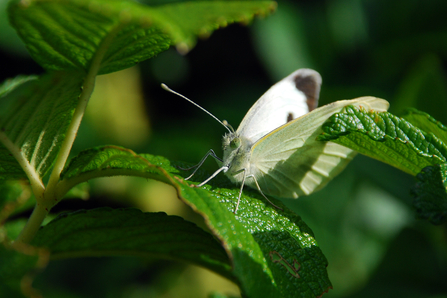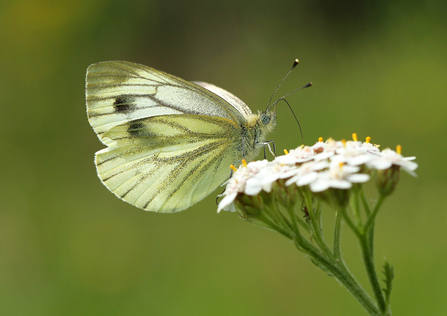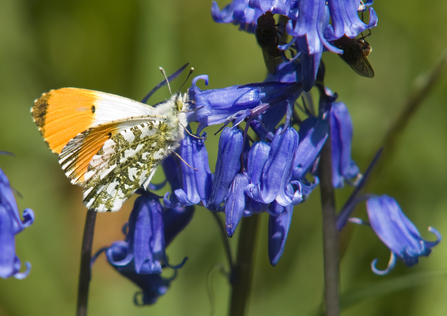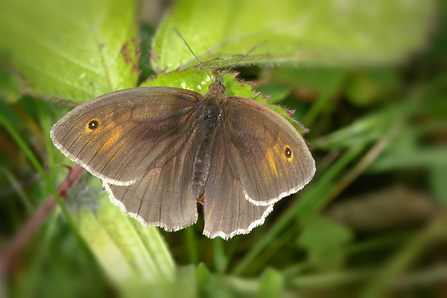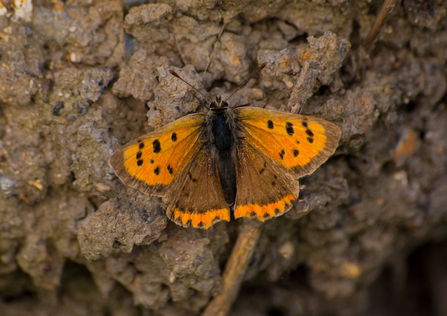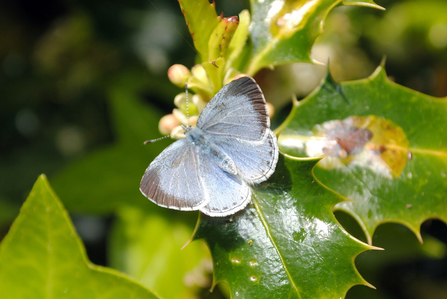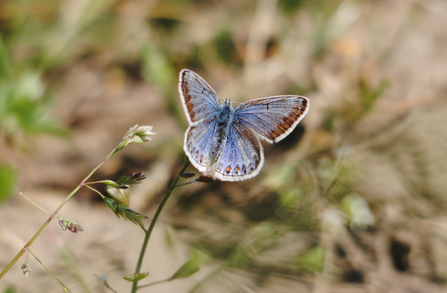Why do butterflies visit gardens?
A variety of different butterflies visit our parks and gardens looking for food and a home. Each garden will attract a different set of butterflies depending on the plants, trees and shrubs there are.
Which butterflies am I likely to see in my garden?
The following butterflies are some of the common species spotted in gardens. An overcast day is a particularly good time to see them up close because they won't be as active and stay still for longer!
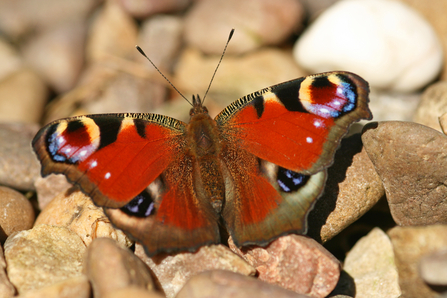
Peacock ©Rachel Scopes
Peacock
Description: Deep-red with black marks and blue 'eyespots' (like a peacock’s tail feathers).
When: January-December
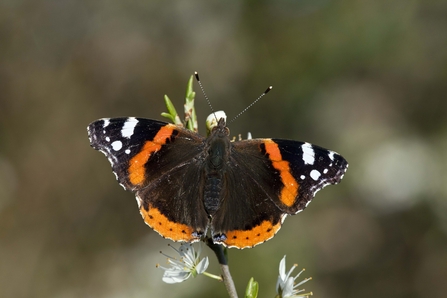
Red Admiral ©Guy Edwardes/2020VISION
Red admiral
Description: Black with broad, red stripes on the wings with white spots near the tips.
When: January-December
Painted lady
Description: Orange with black tips to the forewings covered with white and black spots.
When: April-October
Small tortoiseshell
Description: Reddish-orange with black and yellow markings and a ring of blue spots around the edge of the wings.
When: January-December
Green-veined white
Description: White with grey-black tips and one or two black spots.
When: April-October
Orange-tip
Description: Males are white with bold orange patches on the forewings and light grey wingtips. Females are white with grey-black wingtips.
When: April-July
Meadow brown
Description: Brown with washed-out orange patches on the forewings. One black eyespot with a small white ‘pupil’ on each forewing.
When: June-September
Small copper
Description: Bright orange forewings with dark brown spots and a thick, dark brown margin.
When: April-October
Holly blue
Description: Bright blue with black spots on its silvery underside. Females have black wing edges.
When: April-September
Common blue
Description: Males have bright blue wings with a brown border. Females are brown with a blue 'dusting'. Both have orange spots on their undersides.
When: May-October
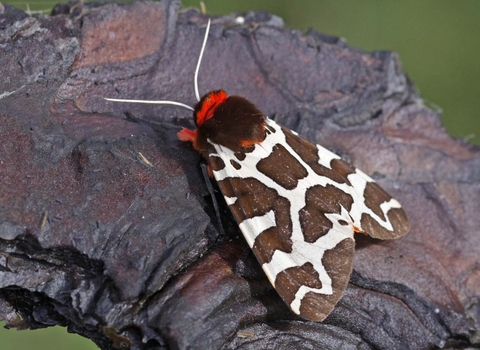
Garden tiger moth ©Margaret Holland
Not a butterfly!
There are lots of bright and beautiful moths in the UK. Some even fly during the day and are often mistaken for butterflies. If you can't find your butterfly here, take a look at our guide to common moths.

